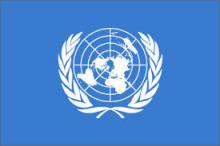S ociety
ociety
In the Headquarters of the United Nations in New York as an official document of the 69th session of the UN General Assembly distributed information material “Improving the institutional framework of the activity of NGOs: the experience of Uzbekistan”.
It states that in the period since gaining independence, Uzbekistan has formed an appropriate legal framework aimed at creating the necessary conditions for the effective operation of NGOs.
It is noted that the Constitution of Uzbekistan guarantees the right of citizens to form trade unions, political parties and other public associations and to participate in mass movements. These standards have been developed in a number of specific laws of the country that have introduced the rights and powers of public organizations, as well as guarantees of their activities.
Among them, adopted in 1991 the Law “On Public Associations in the Republic of Uzbekistan”, which established the principles of creation and activity of public associations – the principles of voluntariness, equality of its members, self-government, legality and openness. The law does not allow interference by public authorities and their officials in the activities of public associations, as well as interference by public associations in the activity of state bodies and their officials.
In 1999, the Law “On Non-Governmental Organizations”, which defines the legal status of NGOs, the order of their creation and the state registration of rights and duties, the economic foundations of their activities.
In turn, adopted in 2003 the Law “On public funds” regulates relations in the field of creation, activity, reorganization and liquidation of public funds. It guarantees freedom of funds, the inviolability of their property and the protection of business reputation.
The document also highlights that the impetus to the development of NGOs gave adopted in 2007 the Law “On guarantees of activity of NGOs”, which recognized the legal framework guarantees the activities of such organizations to protect their legitimate rights and interests. The law prohibits obstruction of or interference with the activities of NGOs. A separate article of the Act grants the NGOs the right to protection from unlawful decisions of the state bodies, acts or omissions of their officials.
It is also noted that NGOs are exempted from payment of tax on corporate income, value added to the property of legal entities; land tax, other taxes and mandatory contributions.
In particular, along with the development of legislation in the country implemented measures aimed at practical support public benefit non-profit organizations.
So, since 2003, information and methodological support to the activities of NGOs implementing Independent Institute for monitoring the formation of civil society and its regional offices in the field.
“In 2005, created and successfully operates the National Association of NGOs of Uzbekistan, whose members are more than 450 public organizations. To date, the association has created an effective system of organizational, financial and material support to its members, is working to consolidate the efforts of NGOs in the implementation of social projects and programs.
The consolidation of relevant NGOs also directed the activities of the Women’s Committee of Uzbekistan and the Ecological Movement of Uzbekistan, one of the statutory objectives of which is to support, respectively, women’s and environmental NGOs.
In 2008, in accordance with the decision of the Oliy Majlis of the Republic of Uzbekistan at the highest legislative body created by the Public Fund for Support of NGOs and other civil society institutions, as well as the Parliamentary Commission for the management of the fund.
During 2008-2013, the State Budget for the implementation of various social projects of NGOs and other civil society institutions Public Foundation provided funds in excess of 28.9 billion. Sum. These funds to address the Parliamentary Commission used to support initiatives of civil society institutions through grant competitions, subsidies and placing social orders”, – informs the document.
In conclusion, it is noted that the results of monitoring studies suggest that the implementation of these measures contributed to not only increase the number of non-profit organizations, but also to further enhance their role in the implementation of democratic reforms in the country, the development and implementation of the major programs of social and economic development.

























